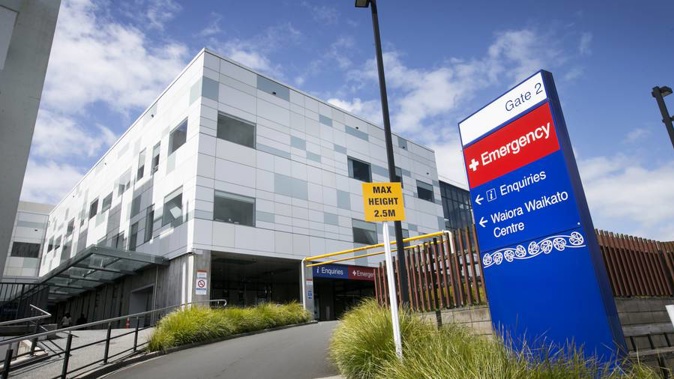

A consultant hired to overhaul surgical services at Waikato Hospital when it was spending $25 million a year to outsource elective surgeries has lost a legal battle to recoup hundreds of thousands of dollars in fees.
Australian Lindsay Boyd claimed Waikato District Health Board, now Te Whatu Ora Waikato, owed him an at-risk fee of A$500,000 plus A$210,000 in holiday cover and termination fees, $782,000 in total.
This was on top of the A$1.2m ($1.32m) the board had already paid him for the 2017/2018 project.
But the DHB argued while the Keezz Australia project was world-class, the $25m in savings was never fully realised and only about $9.7m was actually saved by reorganising elective surgeries.
Keezz Australia was hired by former Waikato DHB chief executive Dr Nigel Murray in May 2017 amid an outsourcing crisis after the DHB was put on notice it could lose training accreditation in orthopaedics because of a serious imbalance in the types of surgeries junior doctors were learning.
Orthopaedic doctors urged the DHB to fully utilise its 22 theatres, instead of outsourcing patients to private hospitals in Hamilton and sometimes other public hospitals in different regions for surgery, paid for by Waikato DHB.
Outsourcing was done to meet Health Ministry targets for elective surgery to reduce waitlists when DHBs faced financial penalties for not meeting the targets.
Boyd sued the former Waikato DHB in a week-long hearing in the High Court at Hamilton in May.
/cloudfront-ap-southeast-2.images.arcpublishing.com/nzme/FHURFSDO7OFRBWXPPMFUMRA5O4.jpg)
Justice Geoffrey Venning dismissed the claim against Waikato DHB to pay a former business improvement consultancy an "at-risk" fee worth $780,000. Photo / Michael Craig
In his judgment released this month, Justice Geoffery Venning was critical of Boyd’s evidence saying it called “into question his credibility and reliability on important issues”, and in some parts he preferred the evidence of former Waikato DHB staff.
Venning said issues at the DHB including tensions between clinicians and senior executives in 2017 led to the creeping growth in outsourced surgeries.
Keezz was hired to complete a 20-week Surgical Services Reinvention Project costing A$2.4m ($2.65m) with half of that an at-risk fee that would be paid once $25m in savings had been agreed.
Boyd claimed the at-risk fee was the idea of the DHB but Venning said the evidence showed it was Keezz’s suggestion, such was Boyd’s confidence in his project.
The project was extended twice by agreement, stretching to 30 weeks, and each time the at-risk fee was reduced accordingly so it ended up being A$500,000 ($552,000).
While everyone agreed the overhaul of surgical services was successful, there was no methodology for measuring the savings and one could not be agreed.
Keezz’s savings estimates were as high as $36m. However, the DHB said, based on theatre discharges, the saving was $9.7m.
Each theatre surgery cost $7549 at the time and there was an increase of 3406 discharges to 32,706 in 2018 however Justice Venning said the evidence did not support a measurable saving of $25m.
A falling out between Boyd and his business partner Pearson culminated in the DHB terminating the project a week early in June 2018.
In early May that year Boyd incorporated a new company called Keezz NZ where he was sole director and tried to have the services agreement assigned to it, the judgment said.
In mid-June, Boyd’s lawyer emailed the DHB demanding it confirm it would not assign the agreement to any other entity other than Keezz NZ, and later advised that Keezz Australia was insolvent and had ceased trading.
/cloudfront-ap-southeast-2.images.arcpublishing.com/nzme/2TZZUXJJQRDELGJLQHID42OYKA.jpg)
Former Waikato DHB interim chief executive Derek Wright told the High Court he needed to be sure the contract had been fulfilled before paying a large sum of taxpayer money. Photo / Alan Gibson
Pearson accused Boyd of fraud and made a complaint to police, prompting Boyd to leave the country hastily a week before the project was to end.
Boyd told the Herald Keezz Australia never ceased trading, was still operational, and he never told the DHB otherwise.
He also denied telling then-critical care clinical leader Dr Grant Howard he was returning to Australia to avoid being stopped from leaving as a result of the police investigation.
But Justice Venning said Howard made a note of the conversation, and even though the date was a day wrong he accepted Howard was telling the truth.
Boyd told the Herald he knew nothing of the allegation or police investigation at the time and an email from police to Pearson soon after, seen by the Herald, appears to dismiss the allegation as a civil matter.
Justice Venning dismissed Boyd’s claim for $AU30,000 for payment of the final week and said the DHB was legally within its rights to end the contract as Boyd abandoned the project.
The judge said Boyd relied on two triggers for payment of the at-risk fee but neither stacked up.
He also dismissed Boyd’s claim of A$180,000 for cover he and another Keezz worker provided during the 2017 Christmas shutdown.
He found in favour of the DHB and dismissed Keezz’s claims. A decision on costs would follow submissions.
Boyd, who did not plan to appeal, said if implemented on a national scale the project would have reduced waiting times for surgery significantly and given patients access to better health outcomes.
Natalie Akoorie is the Open Justice deputy editor, based in Waikato and covering crime and justice nationally. Natalie first joined the Herald in 2011 and has been a journalist in New Zealand and overseas for 27 years recently covering health, social issues, local government, and the regions.

Take your Radio, Podcasts and Music with you









